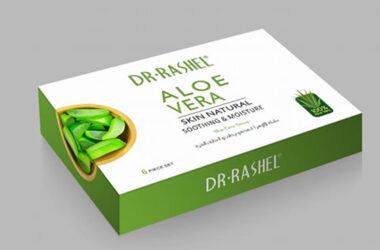When it comes to treating irritated, inflamed, or itchy skin, choosing the right topical treatment is key to fast and safe relief. Two commonly prescribed options are Elica Cream and Elica-M Cream. While they may look similar, they’re designed for slightly different skin needs. Here’s a clear breakdown to help you understand when to use each and which skin types or conditions they are best suited for.
Table of Contents
What Is Elica Cream?
Elica Cream contains mometasone furoate 1 mg/g, a medium-potency corticosteroid that works by reducing inflammation, redness, and itching. It is used for non-infected skin conditions like:
- Atopic dermatitis
- Eczema
- Psoriasis
- Allergic rashes
This cream is best suited for dry, sensitive, or easily irritated skin, especially when there are no signs of infection. It helps calm flare-ups and restore comfort to the skin without causing excessive oiliness.
What Is Elica-M Cream?
Elica-M Cream contains two active ingredients:
- Mometasone furoate (for reducing inflammation)
- Miconazole nitrate (an antifungal agent)
This dual-action formula is ideal for inflammatory skin conditions with fungal involvement. It not only soothes the skin but also kills the fungus causing the infection.
Use Elica-M if you notice:
- Red, itchy rashes with peeling or flaking
- Moist areas between skin folds
- Signs of fungal infection with inflammation
It’s particularly helpful for oily or sweaty areas prone to yeast or fungal overgrowth, such as the underarms, groin, or under the breasts.
How to Tell Which One to Use
If you’re unsure whether your skin condition is infected or just irritated, it’s always best to consult a dermatologist. However, as a general rule:
- Elica is best for clean, inflamed skin with no infection
- Elica-M is better for inflamed skin that also shows signs of fungal infection
🧴 Summary Comparison Table
| Feature | Elica Cream | Elica-M Cream |
|---|---|---|
| Main Ingredients | Mometasone Furoate | Mometasone Furoate + Miconazole Nitrate |
| Purpose | Anti-inflammatory | Anti-inflammatory + Antifungal |
| Used For | Dermatitis, eczema, psoriasis | Fungal rashes with inflammation |
| Best for Skin Type | Dry, sensitive, non-infected skin | Oily, moist, or fungus-prone skin |
| Signs to Look For | Redness, itching, no infection | Redness, itching + peeling or rash |
| Application Area | Anywhere except infected wounds | Areas prone to fungus (e.g., folds, groin) |
Final Note
Always follow your doctor’s guidance when using topical corticosteroids, and avoid long-term use without supervision to prevent skin thinning or resistance.




